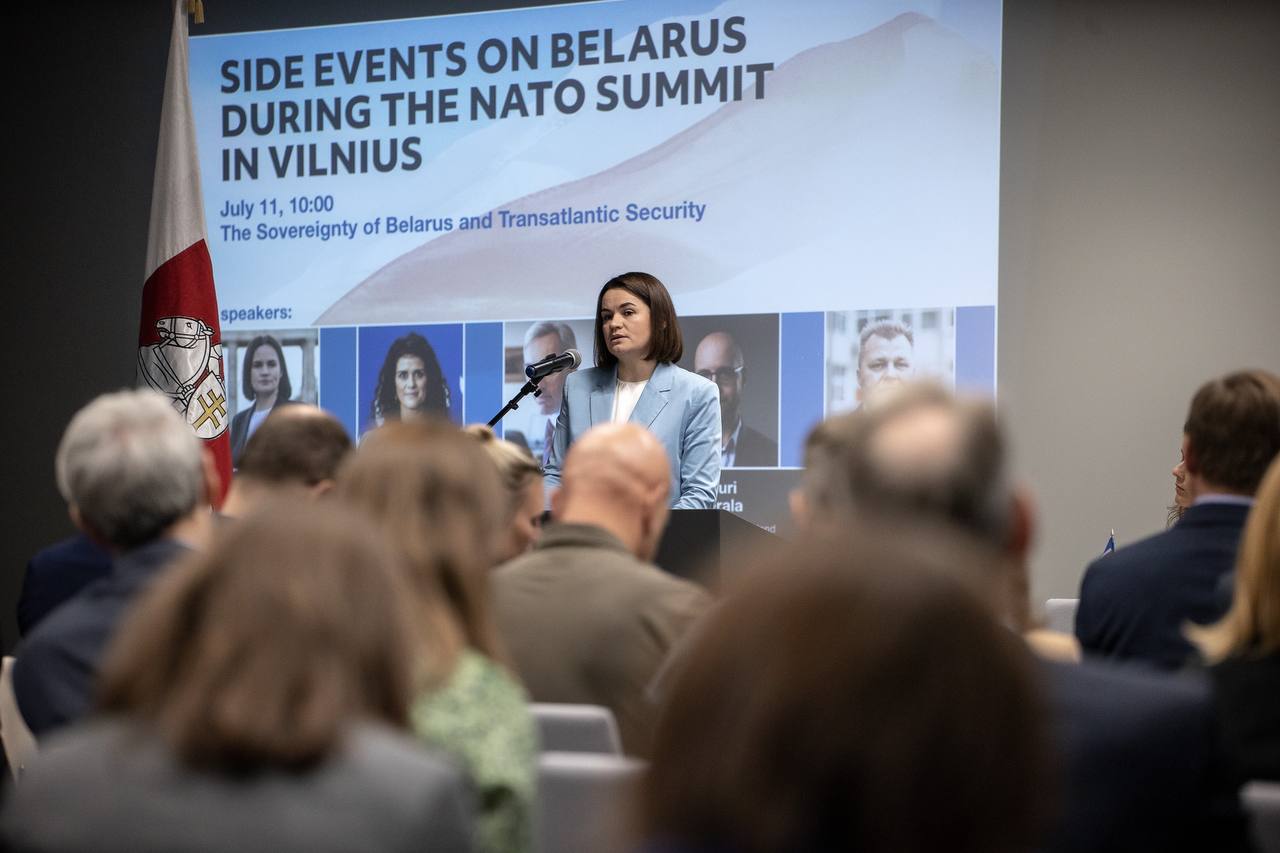Belarus features on the agenda of the NATO summit, but the response to the deployment of nuclear weapons in Belarus is insufficient
 The situation has not changed
The situation has not changed
The NATO summit in Vilnius expressed concern about Wagner PMC and the plans of Russia and the Belarusian regime to deploy nuclear weapons. Belarusian democratic forces in exile emphasised the importance of Belarus for regional security and the need to determine the place of Belarus in post-war Europe.

The Belarusian democratic forces in exile used the Vilnius NATO summit to convey several important messages to the West:
- The deployment of nuclear weapons in Belarus is not only an internal issue, but also a threat to global security, and the response of the international community to this threat is insufficient. The UN Security Council should be convened, and the matter raised at the UN General Assembly leading to sanctions on Russia for the deployment of nuclear weapons in Belarus.
- the very existence of Belarus is under threat from Russia and the illegitimate regime in Minsk due to the deployment of Russian nuclear weapons and Wagner PMC in the country, which will consolidate the Russian presence for years to come.
- without a free and democratic Belarus, Europe will not be safe. Belarus is a key element in the security of the region.
- the future of Belarus is closely linked to the future of Ukraine, since if the latter wins, the country will have a chance. Belarus should not be allowed to become a consolation prize for Putin. There will be no stable peace until Belarus is free from tyranny and the Russian presence.
- in case of victory, democratic Belarus intends to denounce the treaties signed by Lukashenka after 2020, withdraw from the CSTO, the Union State and the EAEU, and restore good relations with all neighbours.
- the post-war structure of Europe must necessarily include international guarantees of the independence of Belarus, its nuclear-free status, and envisage future integration into European and transatlantic structures.
- cooperation between NATO and democratic Belarus can be organized immediately, within the framework of the Partnership for Peace program. In this way, trust will be built, laying a solid foundation for future cooperation. An advisory group between NATO and democratic forces can be established, as has already been done with the European Union.
In turn, NATO calls on Belarus to stop helping Russia and cease hostile actions towards its neighbours. Belarus’ support has been important as it continues to provide territory and infrastructure enabling Russian forces can attack Ukraine and continue Russian aggression. In particular, Belarus and Iran, should cease their complicity with Russia and return to compliance with international law. Deepening Russia’s military integration with Belarus, including the deployment of advanced Russian military capabilities and military personnel in Belarus, has implications for regional stability and the defence of the Alliance. NATO will remain vigilant and continue to closely monitor developments, in particular the possible deployment of so-called private military companies in Belarus. NATO leaders also condemned Russia’s intention to deploy nuclear weapons in Belarus. Such actions by Russia undermine strategic stability and the overall security of the Euro-Atlantic area.
On the eve of the NATO summit, democratic Belarusian leader Sviatlana Tsikhanouskaya discussed the need for decisive action to release Belarusian political prisoners and ensure Belarusian independence with a delegation of US senators. A proposal to appoint a US Special Representative for Belarus was discussed, along with the possibility of a new Act on Democracy in Belarus.
Tsikhanouskaya also met with US President Joe Biden and stressed that Belarusians continue to fight for the liberation of their country. Biden mentioned Belarus in a speech in the courtyard of Vilnius University after the NATO summit in the context of the struggle of Belarusians for the right to determine their own future, making it clear that Belarusians can count on US support.
Subscribe to our newsletter




Situation in Belarus
Constitutional referendum: main consequences


 Video
Video
How to count the political prisoners: are the new criteria needed?


 Video
Video
Paternalism In Decline, Belarusian Euroscepticism, And The Influence Of Russia


 Video
Video












